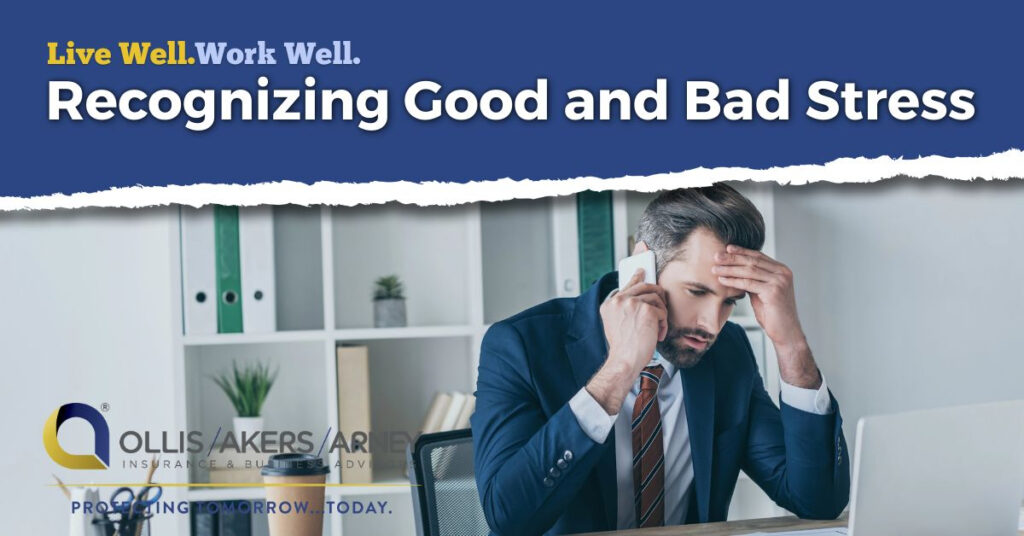Stress is often perceived as a negative force that impacts our overall well-being. However, not all stress is detrimental. Stress is common and healthy; it’s your body’s way of responding to threats, challenges and demands. Good stress, known as eustress, is healthy and can serve as a powerful motivator to tackle challenges. Understanding the difference between good and bad stress is crucial for maintaining a balanced and productive life.
This article explores the difference between eustress and distress and how to leverage the sweet spot of stress to drive motivation.
What Is Good Stress?
Eustress, or “good stress,” is the type of stress that can be beneficial and invigorating. It is the kind of stress that pushes you to perform better, encourages growth and helps you achieve your goals. Eustress can arise from various positive experiences, such as starting a new job, preparing for a competition or embarking on an exciting project. The key benefits of eustress include:
- Increased motivation—Eustress can boost your drive to accomplish tasks and reach milestones.
- Enhanced performance—It can improve your focus and efficiency, leading to better results.
- Personal growth—Facing challenges with eustress can help you develop new skills and build resilience. Consider the following examples of good stress:
- Starting a new job—The excitement and challenge of a new role can motivate you to learn and grow.
- Learning a new skill—The process of acquiring new knowledge or abilities can be stimulating and rewarding.
- Traveling to a new destination—The adventure and novelty of exploring unfamiliar places can be exhilarating.
What Is Bad Stress?
Distress, or “bad stress,” is the type of stress that can negatively affect your health and well-being. This is normally the type of stress that people refer to when they mention they are stressed. Distress often results from overwhelming or prolonged stressors, such as financial difficulties, relationship problems or heavy workload. Unlike eustress, distress can lead to feelings of anxiety, frustration and helplessness.
Distress vs. Eustress
While eustress is beneficial, distress is the type of stress that can have negative effects on your health and well-being. Distress often results from overwhelming or prolonged stressors, such as financial difficulties, relationship problems or excessive workload.
Here are some ways to differentiate between distress and eustress:
- Emotional response—Eustress typically feels exciting and motivating, whereas distress feels overwhelming and anxiety- inducing.
- Physical symptoms—Eustress may lead to positive physical responses like increased energy. Distress can cause symptoms such as headaches, fatigue, and muscle tension.
- Impact on performance—Eustress enhances performance and productivity, while distress can hinder your ability to function effectively.
Ways to Embrace Good Stress
Finding the sweet spot of stress involves embracing eustress while managing distress. Here are some tips to help you harness the power of good stress and stay motivated:
- Set achievable goals. Break down large tasks into smaller, manageable steps to avoid feeling overwhelmed.
- Take on work projects that excite you. Ask for challenging projects to learn new skills or something that plays to your strengths.
- Maintain a positive mindset. Focus on the potential benefits and growth opportunities that come with challenges.
- Stay organized. Keep a structured schedule to manage your time effectively and reduce unnecessary stress.
- Practice self-care. Engage in activities that promote relaxation and well-being, including exercise, meditation and hobbies. The goal is to reach outside your comfort zone so you’re challenged but not to the point of being overwhelmed.
Conclusion
Recognizing the difference between good and bad stress is essential for maintaining a healthy and productive life. Eustress can be a powerful motivator that drives you to achieve your goals and grow as an individual. By embracing eustress and managing distress, you can find the balance needed to thrive in various aspects of your life.
Contact a mental health professional for further information or guidance about stress.
This article is for informational purposes only and is not as medical advice. For further information, please consult a medical professional. © 2025 Zywave, Inc. All intended rights reserved.


